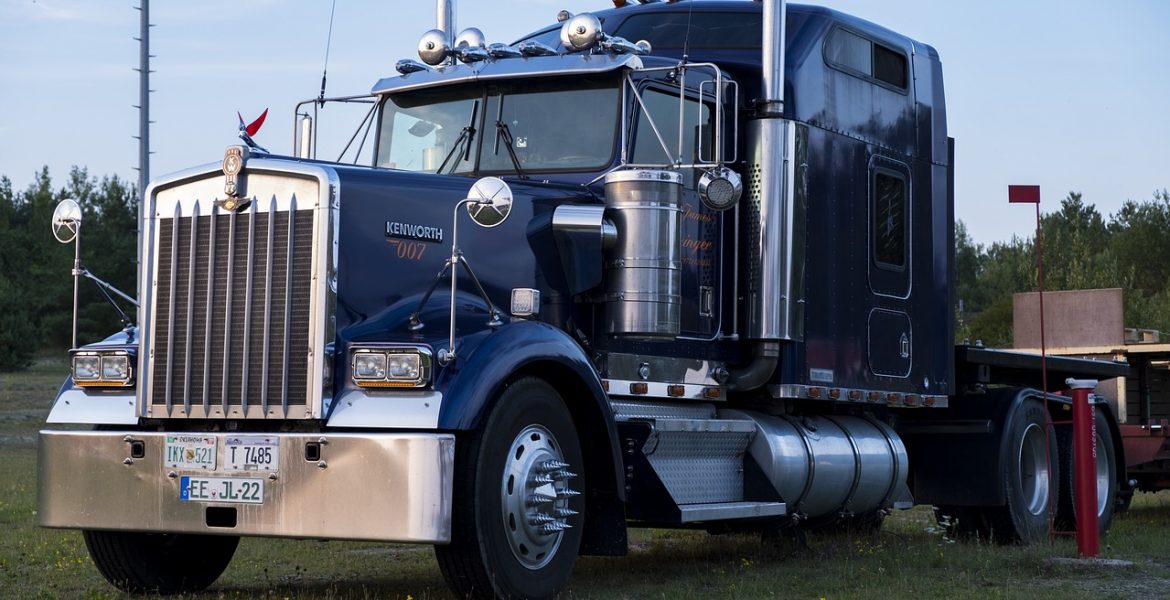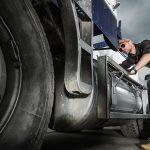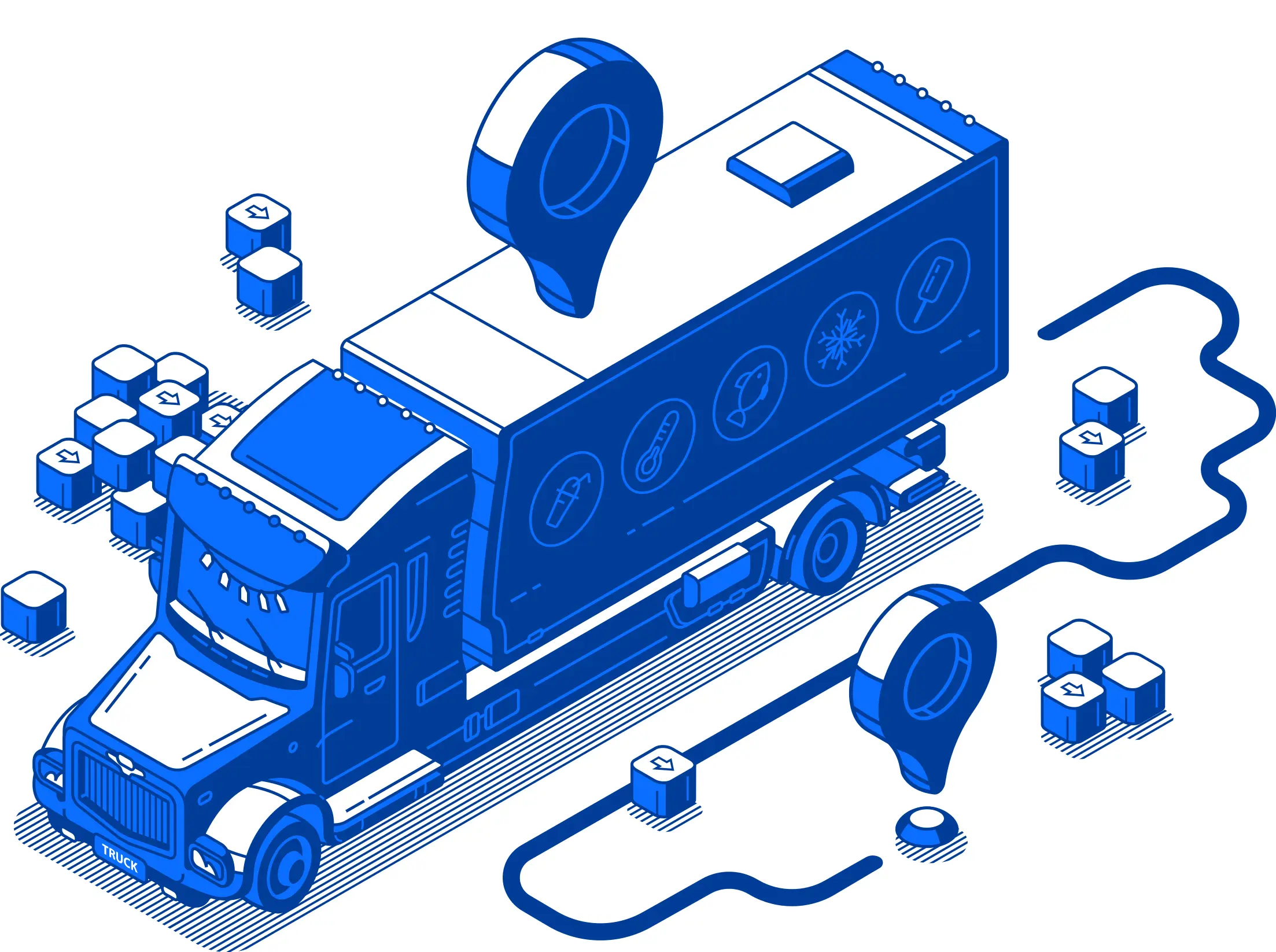Most people see the large semis and long haul trucks filling our nation’s highways and for the most part, they all look the same. They rarely consider how different trucks may be necessary to haul different loads, except possibly if they notice a semi hauling a trailer filled with cars headed to the dealership or a fuel truck carrying gasoline or some other kind of liquid. Of course, for drivers, especially those just starting out, understanding the different types of trucks and which ones are appropriate for which loads is crucial information.
For those of us in the know, we understand the importance of having the right trailer for the job. While most trucks are able to handle a variety of trailers, the trailers themselves are designed specifically to haul a particular kind of cargo, with special modifications made for the various demands required of them. For instance, hauling livestock is very different from hauling perishable goods, which is different from hauling coal, and so on.
Over the course of a career, a long haul driver is likely to carry most if not all of the various types of goods that get shipped over American roads. Understanding the different types of trailers involved and what’s unique about each type will give drivers, especially those starting out, more options and more opportunity for good paying jobs.
What are dry haul vans used for?
The most common type of big rig truck seen on roads and highways is known as a dry haul van. These ubiquitous trailers are basically big empty boxes, almost like a shipping container on wheels, that can haul most of the cargo that needs to be transported. In general, they will be filled with boxes or pallets that are stacked neatly inside in such a way so as to maximize the space.
The standard length for dry haul vans is approximately 53 feet. Compared to other types of trailers, there is little maintenance and upkeep involved, other than regular cleaning and inspections, and they can be hauled by pretty much anyone with a proper CDL license.
For most drivers just starting out, dry haul vans will be the first type of large load that they will haul. Moreover, many of the giant corporations that rely on distributing a large amount of product around the country, including grocery store chains, food and beverage companies, and manufacturers, will have their own private fleets of dry haul trucks, and will either employ full time drivers or contract out jobs as necessary.
What are reefer trucks and what do they haul?
When people first hear the term reefer, they may be a bit confused, but this is just common trucking lingo for a refrigerated truck. These are refrigerated semi-trailers that get attached to a big rig and are used to haul perishable goods and other items that must be kept at a constant temperature below room temperature. Sometimes, reefers are even used to keep cargo warm, though this is less frequent.
Anyone who’s experienced with dry haul vans knows that they can get quite hot inside on sunny days, and products that require refrigeration, including food, beverages, and medicine, would not be able to survive very long in a normal trailer. One example of a special shipment that must be transported in reefer trucks are the shipments of blood that the Red Cross receives from donors, especially following natural disasters.
There are two typical methods of cooling used in reefer trucks, either diesel power generators or cryogenic cooling, the latter of which involves frozen carbon dioxide to maintain the lower temperatures.
When driving a reefer truck, drivers need to realize that they are carrying an extra layer of responsibility. If they get delayed or if something goes wrong with their truck, an entire shipment can become quickly spoiled, resulting in massive losses. For the most part, a standard CDL license is all that’s required to drive a reefer truck, though special endorsements may be needed for certain kinds of hazardous materials.
What are flatbed haulers used to ship?
Flatbed trailers are most commonly used for special cargo that is not suitable for a dry van, whether because of the size, shape, or some other reason. Typically, these trailers are preferred when a crane or forklift is required for loading and the standard dimensions of a dry van make it impossible for the cargo to fit.
Flatbeds are especially well suited for cargo items that are too wide to fit on a standard van. The lack of walls means that the load can protrude beyond the sides of the truck. In addition, while most trailers can only be opened from the rear, meaning that loading and stacking must be performed in a careful, calculated manner, a flatbed can be loaded from all sides. Flatbed trailers can also have two levels for storing goods.
A typical flatbed will be approximately 48 feet long and 8-and-a-half feet wide. Other equipment that is associated with flat bed trailers includes step decks, double drops, and removable goose necks. Of course, while it’s possible to stack these trailers without considering height and width, local roads, state roads and highways, and interstates will all have specific requirements for how high or wide a load can safely be, and it’s very important that these guidelines are known and followed.
Typical cargo that will be found on flatbeds includes cars, pickups, construction equipment and materials, piping, and more. It should be noted that car carriers are a specific kind of modified flatbed specially designed for motor vehicles.
What is intermodal hauling used to ship?
Intermodal hauling is a special kind of shipping that involves cargo that will go through multiple types of transportation on its way to its destination. In addition to traversing highways, this cargo might also travel via ship, barge, canal, railroad, or air. As such it may have special carriers or require complicated logistics, especially if these goods will cross international lines as part of the journey.
Intermodal shipping will often result in backed up lines of trucks, either at borders or at the drop off point, so extra patience is definitely required.
What are tankers used to ship?
Tankers or fuel transports are used for hauling liquids or gases. These trucks are often working directly for oil and gas companies or other industries that rely on the transport of sometimes hazardous or flammable materials. The safety and inspection requirements for tankers are among the highest in the transport industry, and drivers may need special licenses or training.
The importance of safely loading your cargo
No matter what kind of truck and trailer you’re driving, it’s imperative that it is properly loaded, or else it can adversely affect your ability to safely maneuver and could lead to a serious accident on the road. When cargo is loaded incorrectly, it can result in weight or balance problems and make steering, braking, and speed control more difficult or even impossible.
Likewise, a failure to properly secure your cargo can lead to a number of problems, including losing some of your load from the trailers, or to shifting cargo that can lead to a loss of vehicular control. Even if you are not responsible for loading the trailer, always inspect the cargo before you hit the road. You’ll be held liable if any accidents occur.
Saint John Capital Understands Trucking
With more than two decades of trucking industry experience, Saint John Capital understands the challenges faced by drivers hauling heavy freight, especially when they are just starting out. Since our inception, Saint John Capital has concentrated on exclusively serving the trucking industry, meaning that we have deep knowledge of the trucking business and ensuring that our customized services directly meet the financial and cash flow needs of our clients.
Our mission at Saint John Capital is simple: provide freight companies and drivers with a broad range of services that considers their daily needs and helps grow their business. When you are faced with critical decisions, you’ll rest easy knowing that you have the backing of our entire team and products and services that make the effective management of your cash easy and attainable. Whatever your goals, financial flexibility is essential. That’s why we’re always there to forerun your cash, whenever you need it the most.
Contact one of our friendly and experienced customer service representatives today to learn more.











